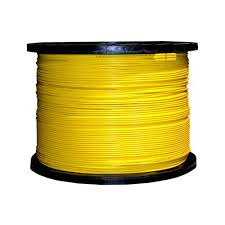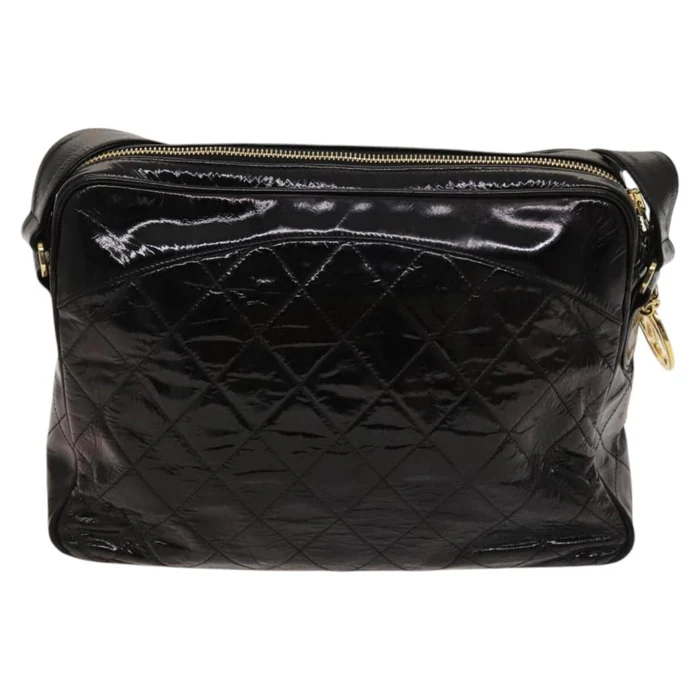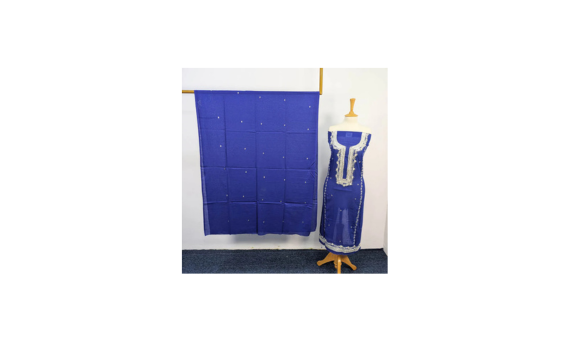How Secure Is Fiber Optic Internet Compared to Traditional Connections?

Strong 8k brings an ultra-HD IPTV experience to your living room and your pocket.
Cybersecurity is a top priority for both individuals and businesses in the digital age. Data security is important whether you're sending emails, handling payments, or using cloud apps. The kind of internet connection you use is one important factor that can affect how protected you are.
This article explores the security of fiber optic internet compared to traditional copper-based connections like DSL and cable. We’ll answer common questions, highlight key differences, and help you decide which connection offers better protection for your data.
Understanding Fiber Optic Internet
Fiber optic internet uses thin glass or plastic strands to transmit data using pulses of light. This is very different from traditional DSL or cable connections, which send data via electrical signals through copper wires.
Because of this fundamental difference, fiber offers several security advantages—on top of its well-known speed and reliability.
Why Internet Security Matters Today
Before we dive into comparing connections, let’s talk about why internet security is critical in today’s world:
Businesses store sensitive customer data like payment information, emails, and personal records.
Hackers are getting more sophisticated, targeting small businesses as well as large corporations.
Data breaches can lead to financial losses, legal issues, and damaged reputations.
The type of internet connection you choose can either help protect your data—or leave it exposed.
How Secure Is Fiber Optic Internet?
Fiber optic technology offers several built-in security advantages:
1. Harder to Tap or Intercept
Unlike copper cables that transmit electrical signals (which can be intercepted with relative ease), fiber optic cables carry light signals. To tap into a fiber optic line, a hacker would need to:
Physically access the cable
Cut or bend it to insert a tapping device
Have specialized and expensive equipment
Even if someone attempts this, the signal is usually disrupted, making detection easier.
Result: Fiber is much harder to tap, which adds an extra layer of physical security.
2. Immune to Electromagnetic Interference (EMI)
Fiber does not carry electricity, so it is immune to EMI. This makes it:
Less vulnerable to external attacks like signal jamming
More stable in areas with heavy electrical equipment
Result: Fiber maintains cleaner, more consistent signals and resists interference that could be used maliciously.
3. Less Signal Degradation Over Distance
Copper lines lose signal strength over longer distances, which sometimes forces data to be boosted or rerouted—creating potential points of weakness.
Fiber maintains strong signal quality across long distances without frequent repeaters or signal amplifiers.
Result: Fewer "touchpoints" in the network reduce the chances of interception.
How Vulnerable Are Traditional Connections?
Traditional internet connections like DSL, cable, or T1 lines have been widely used for decades. While they serve their purpose, they come with some security downsides:
1. Easier to Tap
Copper cables carry electrical signals, which can be intercepted using simple and inexpensive tools—sometimes even without cutting the wire.
Passive taps can read data without interrupting the flow
Hackers can remain undetected while monitoring traffic
2. Susceptible to Electromagnetic Interference
Electrical signals can be disrupted or corrupted by nearby power lines, machines, or radio signals. This can:
Cause data corruption
Create entry points for data theft or disruption
3. More Vulnerable Infrastructure
Older copper networks tend to be less maintained and more vulnerable to physical damage, such as:
Weather-related wear and tear
Easy access through shared utility poles or wiring closets
Data Encryption: Does It Make a Difference?
Yes—but only partially.
Most internet providers and websites use encryption protocols like HTTPS, VPNs, and firewalls to protect your data as it travels. However, encryption is not a substitute for a secure connection. If a hacker gains access to the network itself (e.g., through cable tapping), they may still:
Capture encrypted data packets
Attempt to decrypt them using brute-force attacks
Access unencrypted portions of the data
Fiber offers a more secure transport layer, meaning encryption works in partnership with the physical security provided by the connection itself.
Security Use Cases: Fiber vs. Copper
Use Case
Fiber Optic Security Advantage
Traditional Connection Risk
Remote Work
Secure, high-speed connection reduces VPN vulnerabilities
Copper more prone to tapping
VoIP Calls
Clear, encrypted calls with low risk of interception
Voice data can be intercepted or degraded
Cloud Access
Stable and secure access to sensitive business apps
Frequent signal routing = more risk points
Data Backup
Fast and secure transfer of large files
Slower speeds increase exposure time
What About Wireless?
Fiber connections are often used to power Wi-Fi routers, which then provide wireless access. While the fiber line itself is secure, wireless networks come with their own risks:
Open Wi-Fi networks can be hacked
Weak passwords or outdated routers create entry points
Tip: Always secure your Wi-Fi with strong passwords, use WPA3 encryption, and update firmware regularly—especially in business settings.
Common Questions About Fiber Internet Security
Q1: Can fiber optic cables be hacked remotely?
No. Fiber cables must be physically accessed to be tapped. Remote hacking is nearly impossible without some form of internal system breach.
Q2: Are fiber optics 100% secure?
Nothing is 100% secure, but fiber offers the highest level of physical data protection compared to copper. Pairing fiber with good digital practices (VPN, firewalls, encryption) ensures maximum security.
Q3: Is fiber internet safer for financial transactions?
Yes. It reduces the risk of man-in-the-middle attacks, interception, or data corruption during sensitive processes like online banking or payments.
How to Maximize Your Internet Security (With or Without Fiber)
Here are tips to enhance your internet security—regardless of connection type:
Use strong encryption: HTTPS, VPNs, and SSL certificates for websites
Secure physical access: Lock server rooms and cabling closets
Keep software updated: Patch firewalls, routers, and antivirus programs
Implement user training: Teach employees to avoid phishing or suspicious downloads
Work with a secure ISP: Choose providers with strong infrastructure and data privacy policies
Conclusion: Is Fiber Optic Internet More Secure?
Yes, compared to conventional copper-based connections, fiber optic internet is noticeably more secure.
Its physical resistance to tapping, immunity to interference, and stable long-distance transmission make it an ideal choice for:
Businesses handling sensitive data
Remote workers relying on VPNs or cloud tools
Anyone looking to future-proof their internet connection
While no system is immune to attack, fiber provides the strongest first line of defense. When paired with smart digital habits and network protections, it can help protect your data, your customers, and your reputation. For the best prices and top-quality products, visit a trusted store for bulk fiber optic cable to ensure your infrastructure is built on a secure foundation.
Note: IndiBlogHub features both user-submitted and editorial content. We do not verify third-party contributions. Read our Disclaimer and Privacy Policyfor details.






